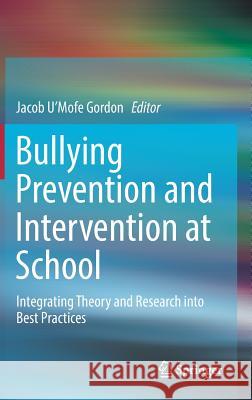Bullying Prevention and Intervention at School: Integrating Theory and Research Into Best Practices » książka
topmenu
Bullying Prevention and Intervention at School: Integrating Theory and Research Into Best Practices
ISBN-13: 9783319954134 / Angielski / Twarda / 2018 / 155 str.
Kategorie:
Kategorie BISAC:
Wydawca:
Springer
Język:
Angielski
ISBN-13:
9783319954134
Rok wydania:
2018
Wydanie:
2018
Ilość stron:
155
Waga:
0.41 kg
Wymiary:
23.39 x 15.6 x 1.12
Oprawa:
Twarda
Wolumenów:
01
Dodatkowe informacje:
Wydanie ilustrowane











